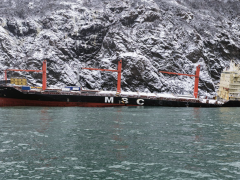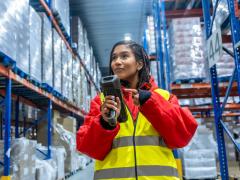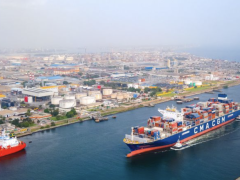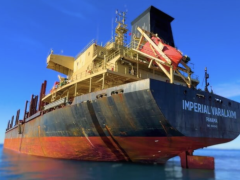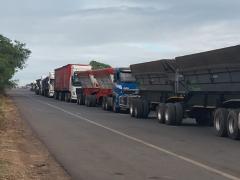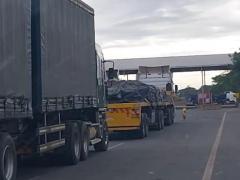The Road Transport Management System (RTMS) is continuing to prove that voluntary self-regulation can be one of the most powerful tools in improving fleet safety, efficiency and sustainability. What began as an initiative to curb vehicle overloading has evolved into a national standard that is reshaping the way operators manage risk on the road. According to Dr Paul Nordengen of the RTMS National Steering Committee and Heavy Vehicle Transport Technology Africa, the success of the programme speaks for itself. “When the forestry industry first joined RTMS, around 30% of trucks delivering pulp to paper mills were overloaded. Since the introduction of RTMS in 2015, that figure has dropped to just 1% – a result impossible to achieve through law enforcement alone.” Speaking during a recent industry event on RTMS, he showcased how the sugar industry had achieved similar results, reducing overloading from 30% to between 1% and 2%. “That is significant when you consider how variable commodity densities are in the sugar and timber sectors. Managing payloads efficiently while almost eliminating overloading is quite a feat, while at the same time preserving the road network and improving overall transport productivity.” RTMS’s benefits extend well beyond loading control. The City of Cape Town, the first government fleet to achieve certification, has seen major improvement in vehicle servicing. Of a 900-vehicle fleet, just over half were serviced on time before RTMS. Within six years, this figure was improved to 94%, resulting in a much safer and lower-risk operating environment. The data from the private sector is equally compelling. One car-carrier company recorded 126 crashes in 2016. By 2023, the number had dropped to just seven. Another transporter saw fuel consumption improve by 23% and vehicle breakdowns fall by more than half within five years of implementing RTMS. “These improvements are a direct result of the programme’s focus on sound maintenance processes and driver behaviour – defensive driving, reduced speeding, gentle acceleration and braking as well as fuel- efficient operation – all of which are embedded in the RTMS accreditation scheme,” said Nordengen. Oliver Naidoo, managing director of JC Auditors, agrees that the system is transforming safety performance. “Perhaps the biggest risk in transport is road safety itself. RTMS provides the only national standard that gives structured guidance for commercial fleet operations, and the results speak volumes,” he said. According to Naidoo, the biggest challenge, however, is not building the framework, but changing culture. “Self-regulation is a cycle: plan, do, check. You can’t improve what you don’t measure. The audit process requires key performance indicators at the outset so we can identify risks and process gaps. The auditor’s role isn’t to find fault but to understand the business’s risk exposure and ensure those risks are being managed effectively.” RTMS currently covers 13 elements, each requiring documented processes showing how a company meets the standard. Certification is issued per site and allows firms with multiple depots to take a phased approach to compliance. Naidoo emphasised that control of loading was critical, not only because overloading is illegal and invalidates insurance, but because it increases braking distance and reduces handling capability. “Each commodity must have a defined, verifiable loading method,” he said. “Similarly, companies must have a clear speed policy that promotes safe driving suited to traffic, weather and road conditions.” The goal is not to penalise drivers. “Drivers are a scarce and valuable resource. The aim is to mentor and train them, not punish them. Changing behaviour through education builds a safer, more sustainable operating culture,” he said. For Johan Kruger, managing director of AutoForce, the difference RTMS makes is deeply personal. “At a previous company, we lost two drivers in a head-on collision. After we became RTMS-accredited, we never had another fatality. The change was remarkable.” Operating in the Northern Cape’s manganese and iron-ore sector, where road transport has surged by 135% since 2019 in the manganese sector, while more iron ore is being moved by road, Kruger said RTMS had become indispensable. “As volumes rise, risk increases. RTMS helps us manage that risk responsibly while ensuring safety stays at the heart of operations.” LV
RTMS transforming safety performance
Comments | 0



